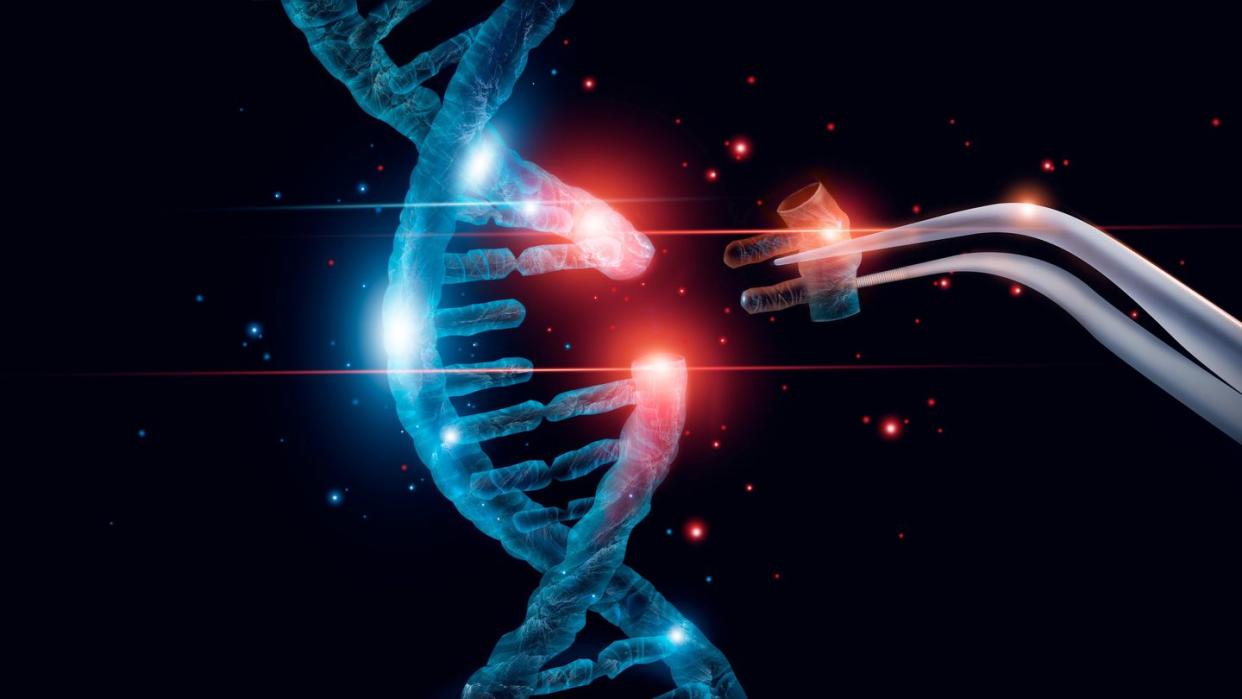A Bold Gene-Editing Solution Began Testing—Then Hit the Strangest Twist

While gene-editing is the future of medicine, navigating a path toward that future is proving difficult.
The Boston-based biotech firm Verve Therapeutics recently had to pause a clinical trial after a participating patient developed an unforeseen side effect to the gene-editing serum.
The company says the unintended side effects actually stem from the drug's delivery system rather than the gene-editing process itself.
Gene-editing has been hailed by some as the “next generation” of medicine, but bringing that future into reality might need a bit more work than just uttering Jean-Luc Picard’s famous catchphrase “make it so” and cranking it to warp 9. That’s because gene-editing systems like CRISPR give scientists an incredible ability to manipulate the genome in a precise location, but controlling the final outcome of that edit can be much harder to predict.
And the Boston-based biotech company Verve Therapeutics is learning that lesson the hard way. The company recently announced that it’s putting a pause on its Heart-1 clinical trials after discovering unforeseen side effects of its gene-editing treatment, a serum known as VERVE-101, which is designed to prevent heart attack by altering the cholesterol-managing PCSK9 gene.
“The Heart-1 clinical trial continues to support proof-of-concept for in vivo base editing of the PCSK9 gene in the liver,” the company’s CEO Sekar Kathiresan said in a press statement. “However, at potentially therapeutic dose levels of VERVE-101, we have observed certain asymptomatic laboratory abnormalities, which we believe are attributable to the lipid nanoparticle (LNP) delivery system.”
In recent years, one of Verve’s biggest goals has been developing a gene-editing therapy that reduces cholesterol known to cause heart attacks for people suffering from hypercholesterolemia. While high-density lipoprotein (HDL) cholesterol is sometimes referred to as the “good” kind of cholesterol, hypercholesterolemia deals in the latter, known (predictably) as low-density lipoprotein (LDL).
While showing promising results when tested on monkeys, VERVE-101 moved onto a small human trial, which hit more than a few setbacks. Last year, a Nature article analyzed the death of one patient in the trial and concluded it was the result of already advanced heart disease, but now the serum has hit another snag. One patient involved with the trial developed “abnormal” liver enzymes as well as a low blood platelet count, a concerning and unforeseen side effect.
While the setback of this promising gene-editing is mostly bad news, it does come with a few silver linings. First of all, the other five patients in the study did see a noticeable decrease in cholesterol production, meaning the serum appeared to have its intended effect. Secondly, and perhaps most importantly, the fault appears to lie with how the serum is administered — aka the fatty lipids that are apart of the LNP delivery system — rather than gene-editing technique itself.
“We plan to further investigate the laboratory abnormalities observed in the Heart-1 clinical trial in order to inform the next steps for VERVE-101,” Kathiresan said in a press statement. “t this time, we are prioritizing the initiation of the Heart-2 clinical trial of VERVE-102 due to its proximity to the clinic and its use of a different LNP that incorporates an ionizable lipid.”
Gene-editing is undoubtedly the future of treating genetic diseases, but it’ll still be sometime before physicians can truly “make it so.”
You Might Also Like
